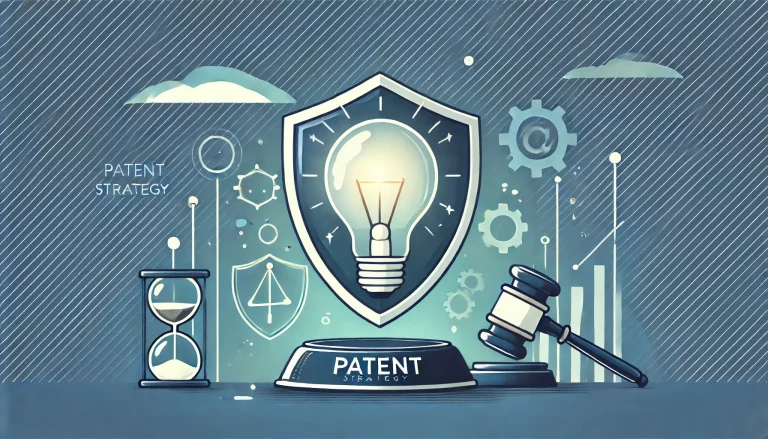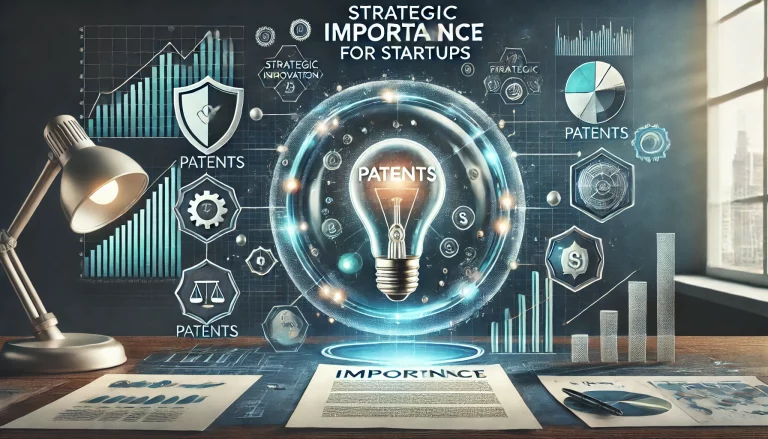For entrepreneurs, securing a patent is more than just legal protection—it’s a strategic business move that can shape the future of a startup. A well-defined patent strategy ensures that your innovation remains exclusive, attracts investors, and strengthens your competitive position. Here’s how to develop an effective patent strategy from the start.
1. Identify What to Patent
Not all innovations qualify for a patent, and not all patents provide strategic value. Start by evaluating your invention’s uniqueness and commercial potential. Ask yourself:
-
Does my invention solve a problem in a new and non-obvious way?
-
Would my competitors benefit from copying it?
-
Is this innovation core to my business model?
If the answer is “yes,” securing a patent should be a priority.
2. Time Your Patent Filing Wisely
Timing is critical in the patent process. The U.S. follows a first-to-file system, meaning whoever files first gets the rights. However, filing too early—before fully developing your idea—could lead to unnecessary costs. Ideally, file when:
-
You have a working prototype or a detailed concept.
-
You’re preparing to discuss your invention publicly (e.g., with investors or at trade shows).
-
You can afford the legal fees and follow-through costs.
Using a provisional patent application allows you to secure an early filing date while giving you 12 months to refine your invention before filing a full utility patent.
3. Research Competitor Patents
A patent search can reveal if similar ideas are already patented and help refine your application to ensure novelty. It also provides insight into competitors' innovation strategies. Use resources like:
-
The USPTO Patent Database
-
Google Patents
-
Professional patent search services
If similar patents exist, focus on differentiating your claims to strengthen your patent’s enforceability.
4. Strengthen Your Patent Claims for Maximum Protection
Filing a patent isn’t just about getting approval—it’s about ensuring your patent is strong and enforceable. A weak patent with narrow claims can be easy for competitors to work around. To strengthen your patent claims:
-
Focus on broad, but defensible claims that protect the core functionality of your invention.
-
Include variations and alternative embodiments in your application to cover future iterations.
-
Work with a patent attorney to craft claims that hold up against legal challenges.
A well-structured patent can make your intellectual property more valuable and reduce the risk of infringement loopholes.
5. Consider Patent Licensing and Monetization
A strong patent portfolio isn’t just for protection—it’s a business asset. You can license your patents to other companies, creating a revenue stream while retaining ownership. Additionally, patents can:
-
Attract venture capital funding.
-
Serve as bargaining tools in partnerships or acquisitions.
-
Increase your startup’s valuation.
6. Work with a Patent Attorney
Navigating the patent process alone can be risky. A patent attorney can help craft a solid application, ensuring broad yet enforceable claims. They also assist in handling office actions from patent examiners and enforcing rights against infringers.
Conclusion
Developing a patent strategy isn’t just about filing paperwork—it’s about aligning intellectual property with business goals. By identifying what to patent, filing at the right time, researching competitors, strengthening your patent claims, and exploring monetization, entrepreneurs can turn patents into a powerful tool for success. Taking a strategic approach early on can help safeguard innovation and maximize long-term business impact.
Schedule Time To Discuss Your Patent Needs
Follow on LinkedIn.com/Company/Gr8BigIdeas/
#bootstrap #patents #patentengineering #startups #entrepreneurship #entrepreneurs #breakthrough #intellectualproperty #corporateinnovation #innovation #productdevelopment











